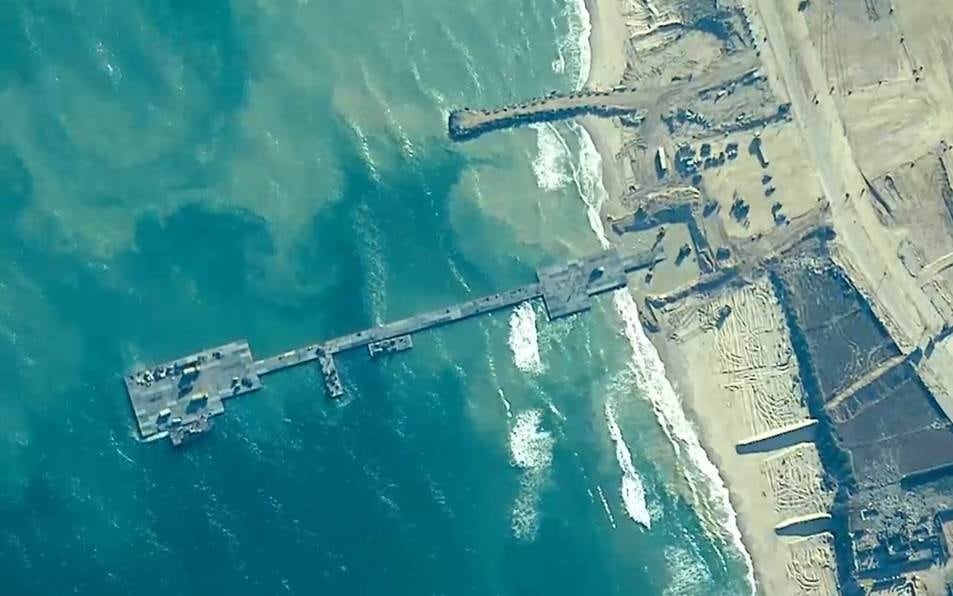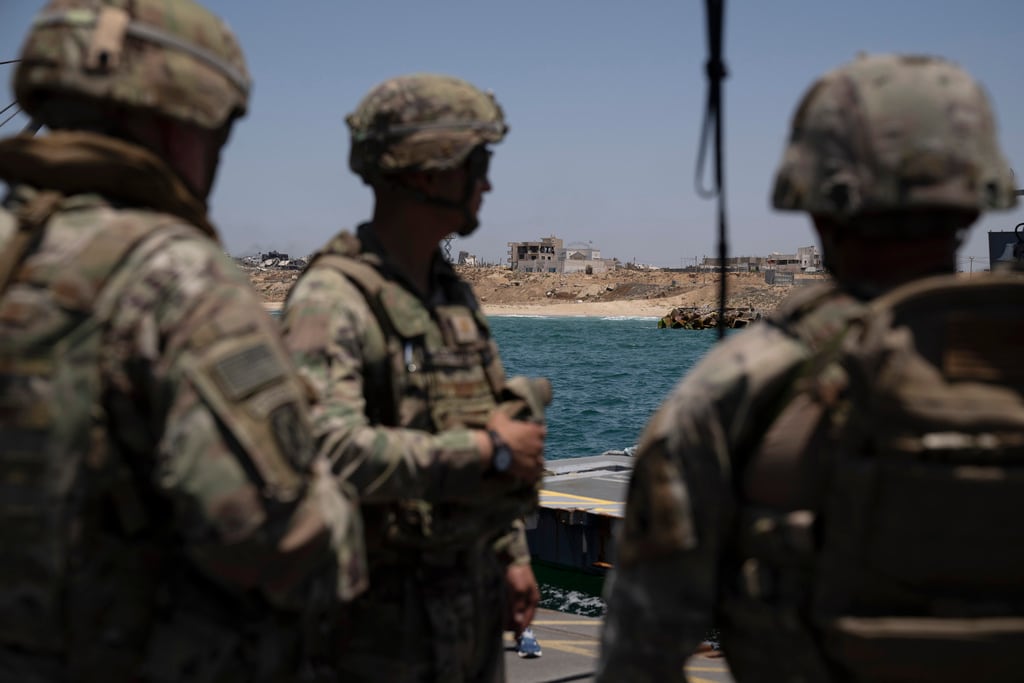Editor’s note: This story has been updated to include additional reporting by The Associated Press.
After one final attempt to re-anchor the pier on Wednesday, the mission to deliver aid to Gaza through a temporary pier manned by U.S. Army and Navy personnel is coming to an end, the Pentagon announced Thursday.
The news comes less than two months after the mission began. The operation is estimated to have cost $270 million and left three U.S. service members injured in the process.
The announcement came after troops attempted to re-anchor the pier and failed “due to technical and weather-related issues,” Pentagon spokesman Air Force Maj. Gen. Pat Ryder said in a statement.
The pier delivered more than 8,100 metric tons, or nearly 20 million pounds, of food to Gazans caught in the crossfire of the Israel-Hamas war, but delivery was often hampered by security issues in Gaza.
Ryder said Thursday that the aid pier mission was always a temporary endeavor.
“As highlighted in the initial deployment announcement, the pier has always been intended as a temporary solution to enable the additional flow of aid into Gaza during a period of dire humanitarian need,” he said. “The pier will soon cease operations, with more details on that process and timing available in the coming days.”
The pier mission was hampered by rough seas and security issues on the ground that hindered the delivery of aid to those who needed it.
RELATED

And in an incident in May that the Pentagon has not fully explained, three U.S. troops sustained non-combat injuries in connection to the mission, with one service member requiring evacuation back to the states.
Officials have not disclosed the nature of that service member’s injury.
Despite the issues with the pier, White House national security adviser Jake Sullivan called the project a success.
“Look, I see any result that produces more food, more humanitarian goods, getting to the people of Gaza as a success,” Sullivan said Thursday. “It is additive. It is something additional that otherwise we would not have gotten there when it got there. And that is a good thing.”
The decision to halt the Gaza pier aid mission comes as Israeli troops make another push deeper into Gaza City, which Hamas says could threaten long-running negotiations over a cease-fire and hostage release, after the two sides had appeared to narrow the gaps in recent days.
U.S. troops removed the pier on June 28 because of bad weather and moved it to the port of Ashdod in Israel. However, the distribution of aid had already stopped due to security concerns.
Before that, the pier was damaged by high winds and heavy seas on May 25, just a bit more than a week after it began operating, and was removed for repairs. It was reconnected on June 7, but removed again due to bad weather on June 14. It was put back days later, but heavy seas again forced its removal on June 28.
The United Nations suspended deliveries from the pier on June 9, a day after the Israeli military used the area around it for airlifts after a hostage rescue that killed more than 270 Palestinians. U.S. and Israeli officials said no part of the pier itself was used in the raid, but U.N. officials said any perception in Gaza that the project was used may endanger their aid work.
As a result, aid brought through the pier into the secure area on the beach piled up for days while talks continued between the U.N. and Israel. More recently, the World Food Program hired a contractor to move the aid from the beach to prevent the food and other supplies from spoiling.
Geoff is the managing editor of Military Times, but he still loves writing stories. He covered Iraq and Afghanistan extensively and was a reporter at the Chicago Tribune. He welcomes any and all kinds of tips at geoffz@militarytimes.com.




